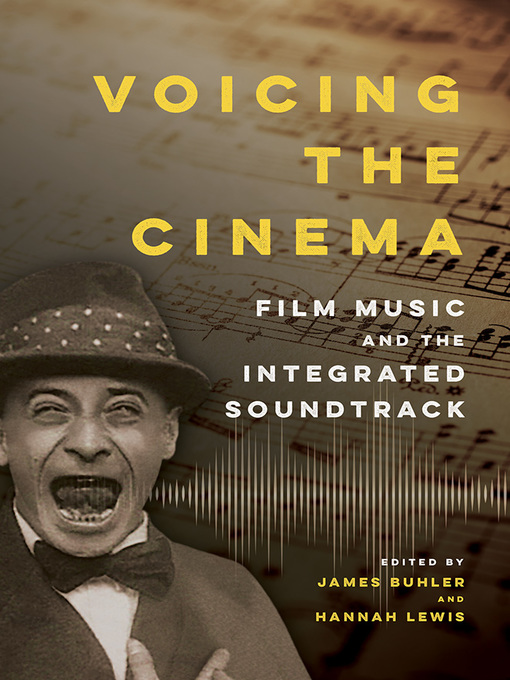The collection is divided into four sections. The first explores historical approaches to technology in the silent film, French cinema during the transition era, the films of the so-called New Hollywood, and the post-production sound business. The second investigates the practice of the singing voice in diverse repertories such as Bergman's films, Eighties teen films, and girls' voices in Brave and Frozen. The third considers the auteuristic voice of the soundtrack in works by Kurosawa, Weir, and others. A last section on narrative and vococentrism moves from The Martian and horror film to the importance of background music and the state of the soundtrack at the end of vococentrism.
Contributors: Julie Brown, James Buhler, Marcia Citron, Eric Dienstfrey, Erik Heine, Julie Hubbert, Hannah Lewis, Brooke McCorkle, Cari McDonnell, David Neumeyer, Nathan Platte, Katie Quanz, Jeff Smith, Janet Staiger, and Robynn Stilwell
| Cover Title Copyright Contents Acknowledgments Introduction: Voices in, of, and on the Cinema / James Buhler and Hannah Lewis Part One: Historical Approaches to Technology and the Voice 1. Apprehending Human Voice in the "Silent Cinema" / Julie Brown 2. Silencing and Sounding the Voice in Transition-Era / Hannah Lewis 3. FM Radio and the New Hollywood Soundtrack /Julie Hubbert 4. Pinewood's Fiddler Fans Goldwyn's Folly: London's Battle for Postproduction Sound Business / Katherine Quanz Part Two: The Practice of the Singing Voice 5. Vococentrism and Sound in Ingmar Bergman's The Magic Flute / Marcia J. Citron 6. Breaking into Soundtrack in 1980s Teen Films / Cari McDonnell 7. Girls' Voices, Boys' Stories, and Self-Determination in Animated Films since 2012 / Robynn J. Stilwell Part Three: The "Auteuristic" Voice of the Soundtrack 8. The Trouble with Onscreen Orchestrators: Progeny and Compositional Crisis in the Four Daughters Films / Nathan Platte 9. Some Thoughts on Genre, the Vococentric Cinema, and "Stella by Starlight" / David Neumeyer 10. Listening to Soundscapes in Kurosawa's Dersu Uzala (1975) / Brooke McCorkle 11. Peter Weir and the Piano Concerto / Erik Heine Part Four: Narrative and Vococentrism 12. Monocentrism, or Soundtracks in Space: Rediscovering Forbidden Planet's Multi-Speaker Release / Eric Dienstfrey 13. Sound and the Comic/Horror Romance Film: Formula, Affect, and Inflection / Janet Staiger 14. Once More into the Breach: Interrogating Ben Winters's Nondiegetic Fallacy / Jeff Smith 15. The End(s) of Vococentrism / James Buhler Contributors Index Back cover | "Including works by many of film music's finest scholars, the diversity of articles and approaches here is most welcome. Some pieces will prove to be real game-changers, beautifully written and argued."—Caryl Flinn, author of Brass Diva: The Life and Legends of Ethel Merman"Valuable new essays on the ways cinema speaks, sings, shouts, and whispers."—Claudia Gorbman, author of Unheard Melodies: Narrative Film Music
"The book will intrigue those interested in voice and film studies and the various ways the singing voice can be used to advantage in cinema." —Choice
|
James Buhler is a professor of music theory at the University of Texas at Austin. He is author of Theories of the Soundtrack and a coauthor of Hearing the Movies: Music and...
